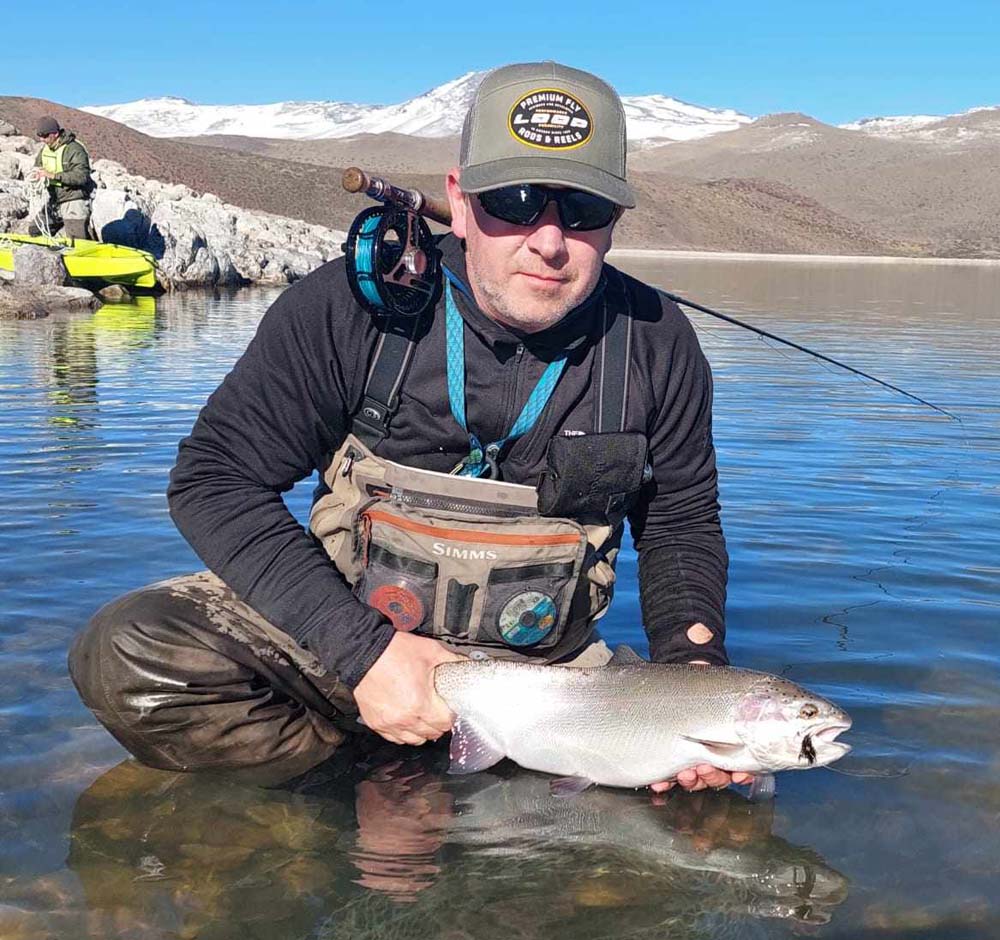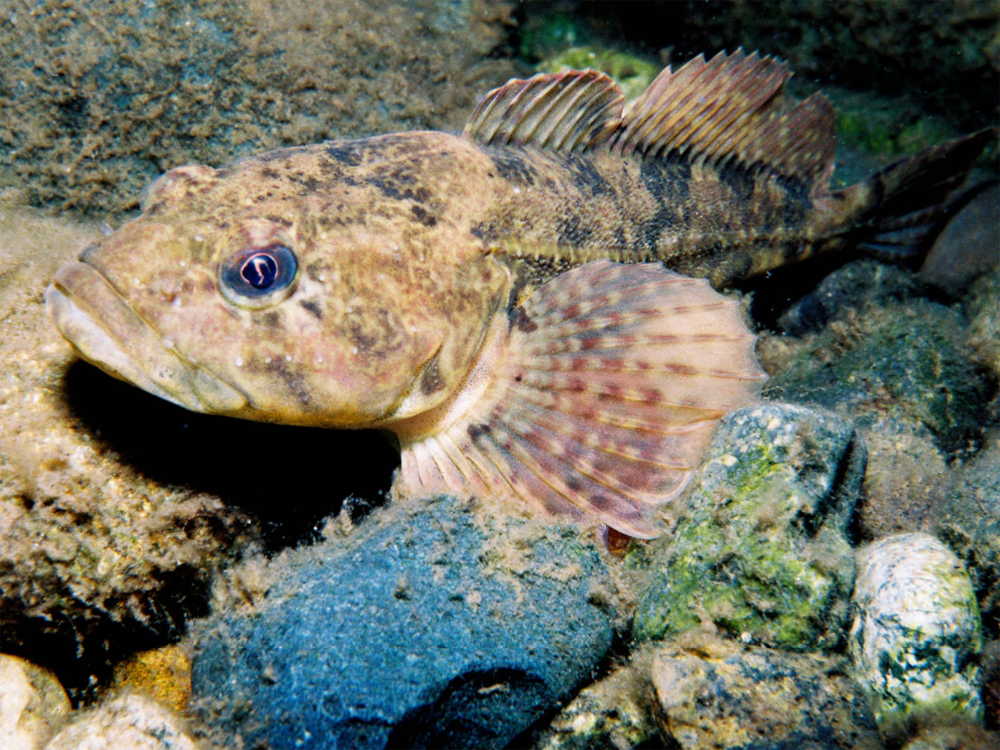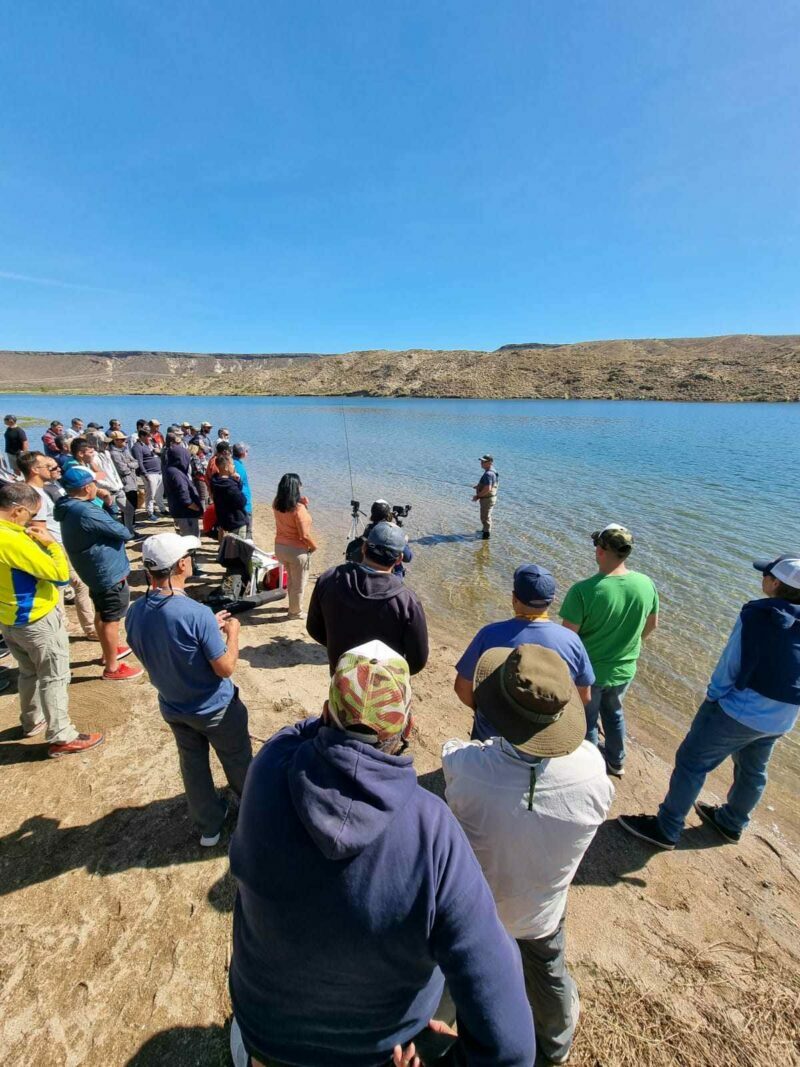
Sculpin fly. Ruben proves a point, they love sculpin.
Argentina has endless trout waters – a destination that still has undiscovered fisheries in pristine environments
By Skip Clement
The sculpin is a very effective fly. You will find that tied in the colors olive, brown, and shades of black will be the most productive. Having the advantage of choosing the hook that best meets your situation improves the chance of getting a bite.
— Ruben Martin
With over 50,000 worldwide fly-fishing followers, Ruben Martin is impactful
Serious fly fishers who tie their flies know Ruben Martin’s fly tying. Most of us gravitate to his podcasts because he is one of the most innovative fly tyers in the world. However, some may not know he is also a skilled fly fisher, casting instructor, professional fly fishing educator, and dedicated entomology student.
Ruben Martin is the first high-profile fly tyer to go beyond acknowledging the benefits of tube fly are more potent than just as large streamers for swinging flies and big game saltwater flies. He tackled what has been fallow forever [the exception of a few in England and Scandinavian tyers] – small, classic trout flies tied on tubes.
The public’s natural resilience to adopting anything new, like small trout flies tied on tubes, is slowly melting, thanks to Martin’s effort featuring tube flies on his channel and our exclusive agreement to reproduce his tube-tying videos for the English-speaking audience.
Ruben Martin`s sculpin fly
In the video below, Ruben goes beyond showing a fly tied to a tube. He adds junction tubing and shows how the hook gets anchored in the tube.

The mottled sculpin is one variety of the a sculpin [Cottus bairdii] colloquially called ‘mottled sculpin,’ a freshwater ray-finned fish. As the name suggests, its coloration is a combination of bars, spots, and speckles randomly distributed. Photo credit USFWS – Roger Tabor.
A scary good sculpin fly
Perhaps more importantly, the sculpin pattern tied by Martin in this posting is uniquely his, and it is scary good – barely resistable. Sculpin is a foodstuff trout treasure worldwide. Sculpins live in zones most favorable to hundreds of taxonomically classified types of sculpins and most types of trouts.
SIDEBAR:
- Generally, sculpins are bottom-dwelling small fish, under 13–15 cm (5- to 6-inches) long, with large heads and sizable fanlike pectoral fins.
- Some have spins that are capable of inflicting painful puncture wounds.
- There are 350 to 500 types of freshwater and saltwater [tidepool] sculpins worldwide.
- Some sculpins can compress their skull bones to fit inside small spaces.
- Sculpins lack a swim bladder. Thus, a sculpin lives a benthic-dwelling life.
- Freshwater sculpins typically spend the day hiding under streambed objects and the night feeding on small invertebrates, especially aquatic insect larvae.
- Female freshwater sculpins court a territorial male, stick around to lay their eggs in the nest the male-created and then leave. The male guards and cares for the eggs, fanning them to keep them oxygenated until they hatch as fry in a few weeks. The fry will be sexually mature in time for the next breeding season.
Sculpin Fly Streamer tied in tube by Ruben Martin
RECIPE:
Tube: 1.8mm classic tube any color
Junction tube: Pro Sportfisher hook guide
Body: Reptilius Minnow dubbing or any bright dubbing
Cone: Pro Sportfisher
Tail: zonker rabbit strip
Eyes: 3.5mm – 3d eyes
Head: woolhead tan
Sharpie color: Similar to rabbit strip from the tail







